Mahatma Gandhi’s real name was Mohandas Karamchand Gandhi. The word ‘Mahatma’ is derived from, maha, meaning super and atma meaning soul. Mahatma Gandhi therefore implies the super soul. He is also lovingly known as ‘Bapu,’ meaning father, throughout India. Mohandas Karamchand Gandhi was born to Karamchand Gandhi and Putlibai on October 2, 1869 in Porbandar, Kathiawar Agency, Bombay Presidency, British India. He died on January 30, 1948, at the age of 78 years, in New Delhi, Dominion of India. He was educated in London and utilized his education in law for the benefit of his fellow Indians, Hindus, Muslims, Christians, and other minorities. He was most famous political leader in British India and is best known for leading India to Independence from the British rule. His strategy of nonviolent civil disobedience inspired many movements for civil rights and independence around the world. He used to wear a traditional dhoti and shawl, which he wove with his own hands from thread spun by him on the chirkha, his iconic spinning wheel. His political British opponent, Winston Churchill, named him the ‘half naked fakir’.
1. Nothing less than freedom.

In response to Mahatma Gandhi’s satygaraha, or independence call, the civil disobedience movement, better known as the ‘Quit India’ movement, was launched. Congress demanded ‘an orderly British withdrawal.’ More than 60,000 people were imprisoned, without trial, after Mahatma Gandhi’s speech on August 8, 1942, in which he said ‘You may take it from me that I am not going to strike a bargain with the Viceroy for ministries and the like. I am not going to be satisfied with anything short of complete freedom. Maybe, he will propose the abolition of salt tax, the drink evil, etc. But I will say, ‘Nothing less than freedom.’ Here is a mantra, a short one that I give you. You may imprint it on your hearts and let every breath of yours give expression to it. The mantra is: ‘Do or Die’. We shall either free India or die in the attempt; we shall not live to see the perpetuation of our slavery.’
2. Civil disobedience of salt should be started.
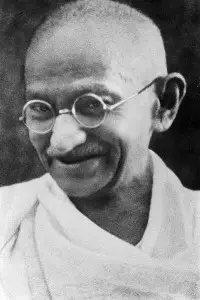
For a long time the British had monopoly over the production of salt and ensured its implementation through a number of laws devised for the purpose. Common people were therefore constrained to buy heavily taxed salt. Mahatma Gandhi said ‘Next to air and water, salt is perhaps the greatest necessity of life’. The Salt March started on March12, 1930. Explaining his action plan, he said, ‘As soon as I am arrested. In that case volunteers. Wherever possible, civil disobedience of salt should be started. These laws can be violated in three ways. It is an offence to manufacture salt wherever there are facilities for doing so. The possession and sale of contraband salt, which includes natural salt or salt earth, is also an offence. The purchasers of such salt will be equally guilty. To carry away the natural salt deposits on the seashore is likewise violation of law.’
3. It was not only the Hindus…
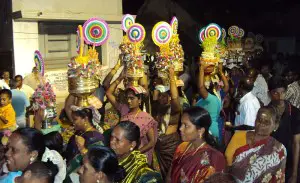
Responding to the welcome address at Victoria Public Hall, Madras on April21, 1915, Mahatma Gandhi endorsed the struggle and contribution of the communities other than Hindus. He said, ‘It was not only the Hindus who struggled, but there were Mohammedans, Parsis and Christians, and almost every part of India was represented in the struggle. They realized the common danger, and they realized also what their destiny was as Indians, and it was they, and they alone, who matched the soul-forces against the physical forces.’
4. It was not the sword that won…

Mahatma Gandhi published a weekly magazine in English from 1919 to 1932. He used the platform to propagate his ideology of non-violence. In this magazine, he acknowledged that that the secret behind the successful spread of Islam in the world was not sword, but the other non-violent virtues. He said, ‘I became more than ever convinced that it was not the sword that won a place for Islam….It was the rigid simplicity, the utter self-effacement of the Prophet, the scrupulous regard for pledges, his intense devotion to his friends and followers, his intrepidity, his fearlessness, his absolute trust in God and in his own mission. These, and not the sword, carried everything before them and surmounted every obstacle.’
5. An eye for an eye only ends up making the whole world blind.

In support of his non-violence strategy, Mahatma Gandhi used his excellent rhetorical capability to turn a metaphorical statement , An eye for eye, into the literal statement that ‘An eye for an eye only ends up making the whole world blind.’ His quotation is based upon the Old Testament legal penalties for violence. The quotation was made popular after it appeared in the famous film about his life, Gandhi. Whereas the Gandhi family considers it as an authentic quote by Mahatma Gandhi, there are scholars who differ. Louis Fischer has mentioned this quote in his book, The Life of Mahatma Gandhi, but many people think that they might be Fischer’s own words.
6. Always believe in your dreams.
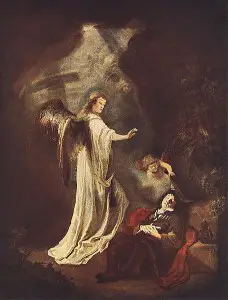
From 1919 to 1932, Mahatma Gandhi published an English weekly journal, Young India. Many of his quotations have been taken from this magazine. He used the magazine to spread his ideology of non-violence and to give hope for independence. On March 23, 1924, he said, ‘Always believe in your dreams, because if you don’t, you’ll still have hope.’ Martin Luther King, too, was inspired by Mahatma Gandhi’s philosophy of non-violence and the power of imagination, as he expressed in his famous, I have a dream speech.
7. Nonviolence is the first article of my faith.

Mahatma Gandhi was tried in the court of the District and Session Judge of Ahmedabad for sedition relating to two articles published in his weekly magazine, Young India. There was severe unrest due to Mahatma Gandhi’s preaching, and his campaign for civil disobedience and non-cooperation had further aggravated the situation, resulting in acts of violence by mobs. In the beginning of his defense statement Mahatma Gandhi said, ‘Non-violence is the first article of my faith. It is also the last article of my creed. But I had to make my choice. I had either to submit to a system which I considered had done an irreparable harm to my country…’
8. The weak can never forgive.
<img class=”size-medium wp-image-7357″ alt=”Glory to the defeated. Civil war monument in Galveston, Texas” src=”https://infomory.com/wp-content/uploads/2013/08/Glory_to_the_defeated_-_dignified_resignation-186×300.jpg” width=”186″ height=”300″ /> Glory to the defeated. Civil war monument in Galveston, Texas
Responding to the various questions of the reporters in a press conference in Karachi, relating to the execution of Bhagat Singh on April2, 1931, Mahatma Gandhi said ‘I do not know a single instance where forgiveness has been found so wanting as to be impolitic…’ Replying to the question ‘But no country has ever shown such forgiveness as India is showing to Britain?’ Mahatma Gandhi said, ‘That does not affect my reply. What is true of individuals is true of nations. One cannot forgive too much. The weak can never forgive. Forgiveness is the attribute of the strong.’
9. An error does not become truth by reason of multiplied propagation.
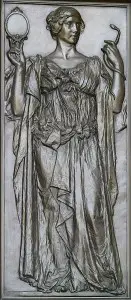
Mahatma Gandhi was a staunch believer in truth and considered it the ultimate source of strength. Sometimes it was said, proverbially, that a lie repeated 99 times becomes true when it is said the hundredth time. That, in fact, was the philosophy of Paul Joseph Goebbels, the Reich Minister of Propaganda in Nazi Germany, but Mahatma Gandhi did not believe in propaganda being the ultimate source of power. He wrote in Young India, ‘An error does not become truth by reason of multiplied propagation, nor does truth become error because nobody sees it. Truth stands, even if there be no public support. It is self sustained.’
10. I will give you a talisman.
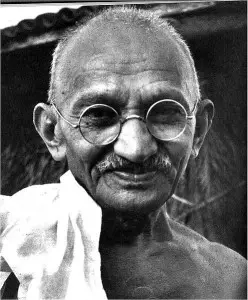
Speaking to workers, many of whom were skeptical about Swaraj, which means ‘self-rule’ or ‘independence’, he said, ‘I will give you a talisman. Whenever you are in doubt, apply the following test. Recall the face of the poorest and the weakest man whom you may have seen, and ask yourself, if the step you contemplate is going to be of any use to him. …? In other words, will it lead to Swaraj, or freedom for the hungry and spiritually starving millions? Then you will find your doubts and your self melt away.’
Conclusion
Quotations are the fruits of wisdom and enlighten receptive minds. There is, however, a tendency of their being misused or taken out of context by negative-minded people, in fulfillment of their ill-conceived thoughts. Verifiability of a quote is very important, but it is quite a difficult task when it comes to quotes of Mahatma Gandhi. What had been said or written by Mahatma Gandhi, many years ago, is very likely to lose its original meaning, unless its context is duly preserved for the sake of traceability and verifiability.










Leave a Reply